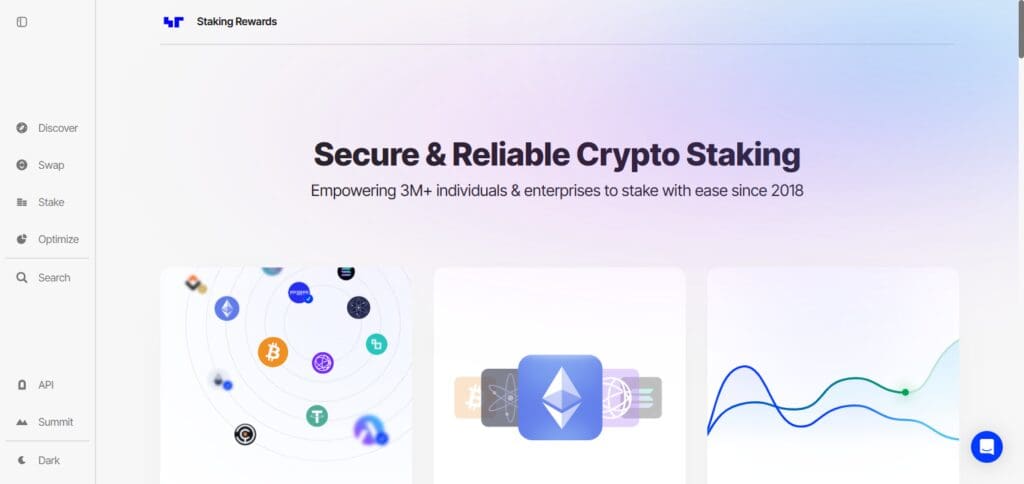I will talk about How to Pay Taxes on Crypto Staking Rewards in this article. Understanding the reward taxation as staking becomes more popular is important.
From income reporting to capital gain calculations, obligations can become difficult to navigate. Here, you will learn how to pay your taxes easier while remaining within legal boundaries.
What is Crypto Staking Rewards ?
Crypto staking rewards are the profits generated by users who engage in the proof of stake (PoS) process within a blockchain network. Users aid in securing and confirming transactions on the network by staking their digital currencies.

They earn rewards, typically in the form of extra tokens or coins, in return. Staking rewards incentives users to keep and actively participate within the ecosystem of the blockchain.
These rewards depend on different factors such as the amount of crypto that was staked, the regulations pertaining to the network staking, and the market’s status.
How to Pay Taxes on Crypto Staking Rewards

For this example, let’s refer to an example platform – CoinLedger. Here’s how to proceed step by step:
Monitor Your Staking Rewards
Import your staking transactions from wallets or exchanges with CoinLedger.

The rewards received are automatically set to the market value by the platform.
Identify Income Earnings
Adult income consists of the staking rewards. CoinLedger also assists in categorizing the standard income expenses.
Create Reports For Taxes
For your capitol gain and income tax, as long as you have used CoinLedger , along with your staking activity input, other earnings will also be included in the tax reports for the detailed tax report.
Pay Taxes
Submit report to the local taxes department or give it alternatively to your taxes consultant for filing.
Security & Common Mistakes
Security Tips
Use Trusted Platforms: Always ensure the exchange has minimum security measures before staking like two-factor authentication (2FA).
Secure Your Wallets: For staking large amounts of crypto, always use hardware wallets as they are less prone to hacking.
Beware of Scams: Research and look up any staking service you plan on using. If it seems to good to be true, then it probably is.
Diversify Staking: Lesser the risk by spreading your stakes in different assets or on different platforms.
Common Mistakes
Not Tracking Rewards: Not keeping track of staking rewards will create misreporting of taxes.
Ignoring Tax Implications: Not taking taxes into consideration when getting staking rewards is a quick way to get penalty charges.
Overlooking Unclaimed Rewards: Some platforms have basic requirements where they don’t automatically stake unclaimed rewards, resulting in compound misses.
Staking Without Understanding Lock-in Periods: Over-staking has lockin periods which may cause loss of liquidity or missing opportunities in market volatility.
How to report staking rewards on your pay Taxes

Calculate Fair Market Value (FMV)
For every staking reward received, evaluate the tokens’ FMV for the specific tokens a person is receiving these tokens. This FMV that has been calculated shall represent a taxable income. It can be quantified as the token’s price in USD or any base currency on the day that you receive the tokens.
Income Declaration
Profit that will be made through staking shall be reported in the tax return under ordinary income. It can be recorded while filling out Form 1040 (Other Income) or Schedule 1 (additional income section).
Incorporating a business extension from staking reports the income obtainable on Schedule C.
Maintain Records of Staking Rewards
Maintain track conscious records of reward and corresponding FMV when received and transaction fees that were associated with receiving it. This is important while filing the income and determining your cost basis when selling the earning tokens.
Form 8949: Staked Tokens Sale Reporting
If a person sells or exchanges their staking rewards, these profits can be recorded on Form 8949. Adequate tracking of these prices is required including sale price, total cost of the tokens, the FMV at time of value recept, along with profits and losses made from the sale.
Professional Help or Tax Software
If you don’t want to deal with reporting, you can use crypto tax software like Koinly or CoinTracker, which tracks your staking income, CARVEOUTS forms and generates the required tax files. If needed, consult a professional tax expert for help on complicated issues.
Pros & Cons
Pros:
Ensures Tax Compliance: Paying taxes on staking rewards makes sure IRS rules are followed whilst helping one avoid penalties that could arise from unpaid taxes.
Prevents Future Liabilities: Properly reporting staking awards decreases the chances of incurring back taxes, fines, and other liabilities during an audit.
Tax Deductions & Benefits: Reporting accurately allows one to take deductions for transaction fees and offset gains with losses.
Proves Credibility: Paying taxes is a sign of credibility and adds to the taxpayer’s good reputation especially when staking large sums or using staking as a primary source of income.
Cons:
Complexity in Tracking: Staking rewards are difficult to keep track as taxes to be paid may change alongside market prices and rates.
Time-Consuming: The record keeping and reporting of staking rewards and their corresponding tax implications could take several hours of labor.
Disproportionate Tax Burden for Certain Reward Stakers: Staking rewards may be taxed as ordinary income due to the taxpayer’s self employment tax and this may have a higher burden than capital tax burden.
Still fuzzy regulations: As the laws surrounding crypto staking evolves, there is a certain level of ambiguity around how particular staking operations will be taxed.
Conclusion
In summary, paying taxes on crypto staking rewards is necessary in order to be compliant with legal systems and avoid ramifications. By understanding the consequences of taxation, tracking rewards accurately, and filling the correct forms, all responsibilities can be satisfied.
Despite seeming overwhelming, tax software or consulting professionals can make this much easier. At the end of the day, paying taxes on staking rewards fosters the safeguarding of investments, promoting clarity, and being prepared for any possible audits or legal complications.









